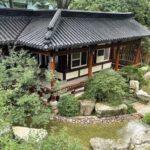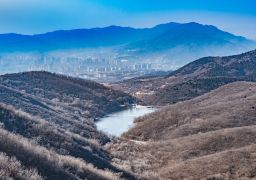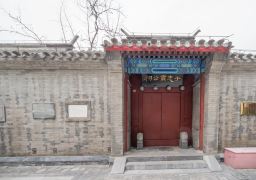Gai Zhu Mountain, known as the second blessed land under heaven, is a Taoist site and the nineteenth minor celestial realm. The mountain is named for its lush bamboo that covers the peak like a canopy. The Gai Zhu Cave measures 10.55 meters wide, 9.61 meters deep, and 4.3 meters high. Surrounding the cave, there are natural-looking stone rooms, wells, mortars, tables, beds, and inkstones. During the Han Dynasty, four Taoist practitioners, Chen Zhonglin, Xu Daoju, Yin Linzi, and Zhao Shudao, were said to have cultivated and ascended to heaven from the mountain. In the Eastern Jin Dynasty, Xu Mai from Jurong resided in the Gai Zhu Cave of Gai Zhu Mountain, practicing the art of nurturing life and built the ‘Qi Zhen Guan’, which was later destroyed. The site was ruined during the Cultural Revolution but was rebuilt in 1980. In December 2006, the People’s Government of Linhai declared the Gai Zhu Cave a protected cultural site of Linhai City. In addition to Taoist architecture, the mountain features other attractions such as ‘Divine Lion’s Spiritual Saliva’, ‘Dan Feng Tower’, and tea gardens on the eastern mountain, one of the ancient tea gardens in Jiangnan, known for producing the famous ‘Gai Zhu Tea’. Open all day from January 1st to December 31st.
Gai Zhu Mountain
Gai Zhu Mountain, known as the second blessed land under heaven, is a Taoist site and the nineteenth[...]









